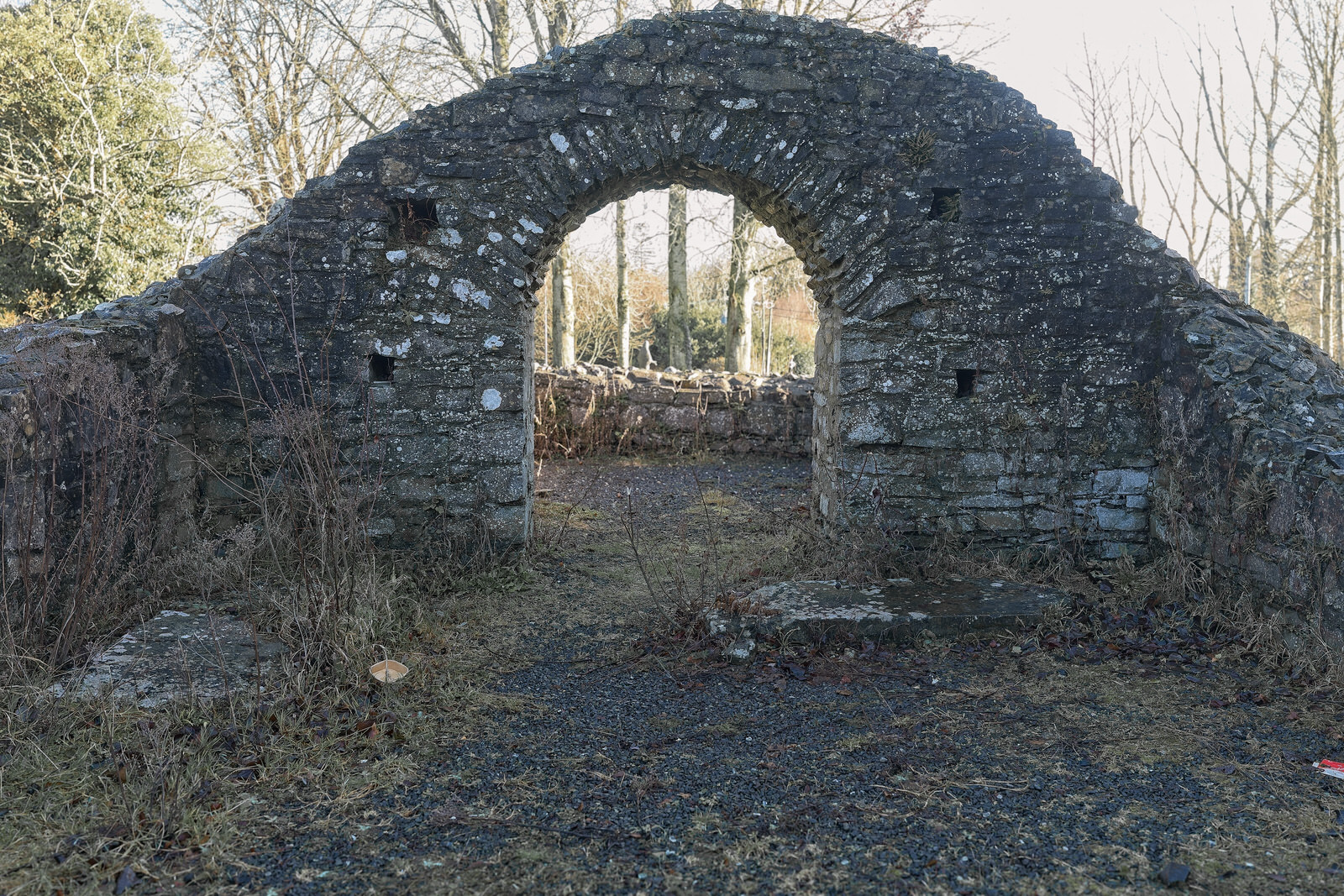THE MAUDLIN CEMETERY
FEATURING OUR LADY OF TRIM BY CHRISTOPHER RYAN
In Ireland maudlin means self-pityingly or tearfully sentimental, often through drunkenness.
The statue was commissioned by a local committee in 1976. Christopher Ryan of the Barrenhill Gallery, Howth, designed the statue which was cast in bronze by the Dublin art Foundry. The Barrenhill Gallery was operated by Elizabeth and Christopher Ryan from 1970 to 1976 at Barrenhill House, Bailey, Howth, Co. Dublin.
St. Mary’s Abbey was home to “Our Lady of Trim”, a wooden statue reported to work miracles. The statue made Trim a major pilgrimage site from at least 1397. During the Reformation, the statue was burned and Henry VIII dissolved the abbey. The abbey’s bell tower, the “Yellow Steeple”, is the primary remnant of St. Mary’s.
The Maudlin Cemetery which was the site of the Leper Hospital of Mary Magdalene, and later a cemetery which was used as a burial ground for the poor who died in the workhouse.
I have visited the Trim many times as my mother’s immediate family live in Trim or are from the area but I was unaware of this old cemetery until I came across at Christmas 2022.
The word ‘maudlin’ comes from the old French, Latin and Greek words for Magdalen, but Chamber’s and other accepted dictionaries state that St. Mary Magdalen has been erroneously identified with ‘The Penitent Woman’ of St. Luke’s Gospel Chapter 7 verse 38. ‘maudlin’ means ‘sickly with eyes swollen with tears ‘, and the painters of bygone days portrayed a woman said to be St. Mary Magdalen with large tear filled bloodshot eyes meant to show how sorry she was for her past sinful life. At a later date we get the expression ‘Maudlin with drink’.
The Maudlin graveyard was visited at the end of the 19th century by Lord Walter Fitzgerald and members of the Society for the study of the memorials of the dead and in Vol. V1 page 595 of their journal for the year 1892 Lord Walter gives us an account of their findings. The following is an extract…… “This burial ground contains the old church of St. Mary Magdalen of which the chancel arch still survives. It is situated close to the town of Trim on its south side and seems now to be only used as a burial place for paupers who die in the trim workhouse nearby. Only two tombstones seem to have survived and they are situated to the east of the church ruins”. The account goes on to give a reading of the inscriptions on these two tombstones which is helpful as now both inscriptions are almost illegible through neglect.
The statue was commissioned by a local committee in 1976. Christopher Ryan of the Barrenhill Gallery, Howth, designed the statue which was cast in bronze by the Dublin art Foundry. The Barrenhill Gallery was operated by Elizabeth and Christopher Ryan from 1970 to 1976 at Barrenhill House, Bailey, Howth, Co. Dublin.
St. Mary’s Abbey was home to “Our Lady of Trim”, a wooden statue reported to work miracles. The statue made Trim a major pilgrimage site from at least 1397. During the Reformation, the statue was burned and Henry VIII dissolved the abbey. The abbey’s bell tower, the “Yellow Steeple”, is the primary remnant of St. Mary’s.
The Maudlin Cemetery which was the site of the Leper Hospital of Mary Magdalene, and later a cemetery which was used as a burial ground for the poor who died in the workhouse.
I have visited the Trim many times as my mother’s immediate family live in Trim or are from the area but I was unaware of this old cemetery until I came across at Christmas 2022.
The word ‘maudlin’ comes from the old French, Latin and Greek words for Magdalen, but Chamber’s and other accepted dictionaries state that St. Mary Magdalen has been erroneously identified with ‘The Penitent Woman’ of St. Luke’s Gospel Chapter 7 verse 38. ‘maudlin’ means ‘sickly with eyes swollen with tears ‘, and the painters of bygone days portrayed a woman said to be St. Mary Magdalen with large tear filled bloodshot eyes meant to show how sorry she was for her past sinful life. At a later date we get the expression ‘Maudlin with drink’.
The Maudlin graveyard was visited at the end of the 19th century by Lord Walter Fitzgerald and members of the Society for the study of the memorials of the dead and in Vol. V1 page 595 of their journal for the year 1892 Lord Walter gives us an account of their findings. The following is an extract…… “This burial ground contains the old church of St. Mary Magdalen of which the chancel arch still survives. It is situated close to the town of Trim on its south side and seems now to be only used as a burial place for paupers who die in the trim workhouse nearby. Only two tombstones seem to have survived and they are situated to the east of the church ruins”. The account goes on to give a reading of the inscriptions on these two tombstones which is helpful as now both inscriptions are almost illegible through neglect.


